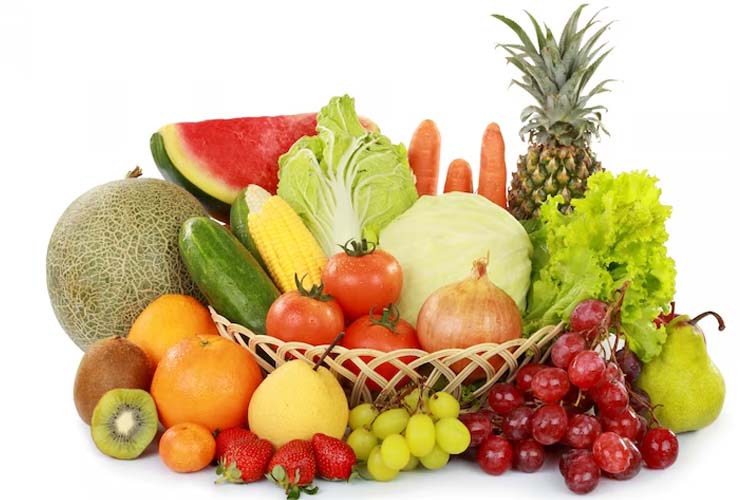The Truth About Sugar: How Much is Too Much and What Are the Alternatives?
April 20, 2023 | by Yashaswi Pathakamuri | Posted in Nutrition Facts
Sugar is a type of carbohydrate that is commonly found in many foods and drinks. It is a sweet-tasting substance that is often used as a flavoring agent and a preservative. While it can provide a quick source of energy, consuming too much sugar can have negative health effects.
Although carbohydrates are essential macronutrients (nutrients the body uses in large amounts), sugar is not. Sugar is an umbrella term for many types of simple carbohydrates, including white table sugar. Also called sucrose, this is the most common sweetener used in sweet desserts and baked goods.
Consuming too much added sugar can lead to weight gain, tooth decay, and an increased risk of developing chronic diseases such as type 2 diabetes, heart disease, and certain cancers.
Types
There are two main types of sugar: naturally occurring sugars and added sugars.
1. Naturally Occurring Sugars

Natural sugars are sugars that occur naturally in foods such as fruits, vegetables, and dairy products. These sugars are found in their whole food form and are not added to foods during processing. Natural sugars include fructose, which is found in fruits, lactose, which is found in milk and other dairy products, and glucose, which is found in many fruits and vegetables.
While natural sugars are still a form of carbohydrate and can raise blood sugar levels, they are generally considered healthier than added sugars because they are accompanied by other beneficial nutrients such as fiber, vitamins and minerals. Additionally, the sugar in whole foods is usually digested more slowly than added sugars, which can help regulate blood sugar levels and prevent sudden spikes and crashes.
It’s important to note that while natural sugars are healthier than added sugars, they should still be consumed in moderation as part of a balanced diet. Fruits and vegetables are good sources of natural sugars, and they can be incorporated into meals and snacks to add sweetness and flavor while also providing important nutrients.
2. Added Sugars

Added sugars are sugars that are added to foods and drinks during processing, cooking, or at the table. Examples of added sugars include white sugar, brown sugar, corn syrup, high-fructose corn syrup, honey, and molasses.
Added sugars can be found in a variety of processed foods and drinks, including soda, candy, baked goods, and many other foods. Consuming too much added sugar can lead to weight gain, tooth decay, and an increased risk of chronic diseases such as type 2 diabetes, heart disease, and certain cancers. It’s important to read nutrition labels and ingredient lists to identify added sugars in foods and drinks.
How Much is Too Much?
Consuming too much added sugar can have negative health effects, and the American Heart Association recommends limiting added sugar intake to no more than 6 teaspoons (25 grams) per day for women and 9 teaspoons (36 grams) per day for men. However, it’s important to note that these are general recommendations, and individual needs may vary based on factors such as age, sex, physical activity level, and overall health status.
It’s also important to distinguish between naturally occurring sugars found in whole foods like fruits, vegetables, and dairy products, and added sugars that are added to processed foods and drinks. Naturally occurring sugars can be a part of a healthy diet when consumed in moderation, while added sugars provide little to no nutritional value and can contribute to weight gain and chronic diseases.
To reduce sugar intake, it’s important to read nutrition labels and ingredient lists to identify added sugars and to choose whole foods instead of processed foods whenever possible. Substituting natural sweeteners for added sugars can also help reduce sugar intake. Additionally, increasing fiber intake from whole foods such as fruits, vegetables, and whole grains can help regulate blood sugar levels and reduce cravings for sweets.
What Are the Alternatives?
There are several alternatives to sugar that can be used as sweeteners. Here are some popular options:
- Honey: Honey is a natural sweetener that is rich in antioxidants and has antibacterial properties. It can be used in baking and cooking, and also as a topping for foods such as yogurt or oatmeal.
- Maple syrup: Maple syrup is a natural sweetener that is rich in antioxidants and minerals such as zinc and manganese. It can be used in baking and cooking, and also as a topping for foods such as pancakes or waffles.
- Stevia: Stevia is a plant-based sweetener that has no calories and is much sweeter than sugar. It can be used in baking and cooking, and also added to beverages such as coffee or tea.
- Coconut sugar: Coconut sugar is a natural sweetener that is low on the glycemic index and has a caramel-like flavor. It can be used in baking and cooking, and also as a topping for foods such as oatmeal or yogurt.
- Fruit: Fruits such as dates, bananas, and apples can be mashed or pureed and used as a natural sweetener in baking and cooking.
It’s important to note that while these alternatives can be healthier than sugar, they should still be consumed in moderation as they can still contribute to calorie intake. Additionally, some of these alternatives may not be suitable for individuals with certain health conditions, so it’s important to consult with a healthcare provider if you have any concerns.
Overall
It’s important to note that added sugars are often hidden in processed foods and drinks, including soda, candy, baked goods, and many other foods. Therefore, it’s essential to read nutrition labels and ingredient lists to identify added sugars and to choose whole foods instead of processed foods whenever possible.
There are several alternatives to sugar that can be used as sweeteners, including honey, maple syrup, stevia, coconut sugar, and fruit, but it’s important to consume these in moderation as they can still contribute to calorie intake.
Overall, consuming added sugars in moderation and choosing whole foods over processed foods can help maintain a healthy diet and reduce the risk of negative health effects associated with excessive sugar intake.